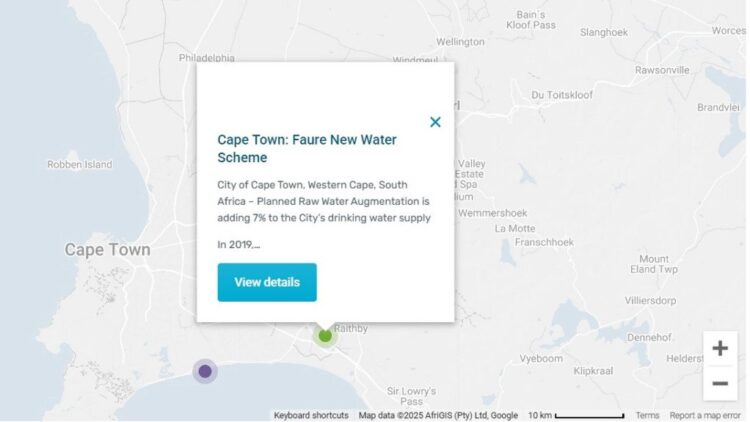Three water reuse schemes operated by Cape Town earned recognition through their inclusion on the Global Connections Map for their sustainable water management practices.
The platform functions as one of the largest digital collections focusing on worldwide water reuse projects to demonstrate resourceful water management practices which are sustainable by design.
The inclusion of these projects demonstrates how Cape Town actively responds to its water scarcity problems after enduring its long drought from 2015 through 2018. “The Day Zero” threat presented itself to the city by indicating the shutdown of municipal water supplies would become inevitable. The serious water crisis in Cape Town led the city to expedite its efforts in finding diverse water sources and implementing state-of-the-art water reuse systems.
The Global Connections Map features three specific projects which serve as examples.
1. Zandvliet Water Reclamation Plant transforms wastewater treatment output into reliable reclaimed water that Cape Town uses as drinking water. Advanced filtration together with disinfection procedures safeguard the reliability of water output at this plant facility.
2. Treated wastewater enters the Cape Flats Aquifer through the Cape Flats Aquifer Recharge Scheme to expand water supply resources. During droughts the rechanneled aquifer operates as a long-lasting water reservoir.
3. The Atlantis Managed Aquifer Recharge Scheme operated since the 1970s received revitalization for boosting its operational capacity. The system captures stormwater together with treated wastewater then sends them to the Atlantis Aquifer which provides water to the local residents.
Through the Global Connections Map cities together with organizations worldwide can mutually exchange information about strategies along with water reuse technologies and knowledge systems. Through its inclusion Cape Town demonstrates its accomplishments while showing other municipalities how to address comparable water resource problems.
Cape Town’s transformation into a water-resilient city required people education and demanded strict water consumption rules and constructed additional water resource systems. The city maintains its dedication to sustainability through following international guidelines which guide water infrastructure projects. Following World Commission on Dams’ guidelines the Berg River Dam received completion in 2009 as South Africa’s very first facility that integrated environmental and social concerns into its design phase.
On a worldwide scale Cape Town receives acknowledgement for its creative water reuse schemes due to its steadfast dedication toward solving environmental battles. The municipal implementation of these projects enables Cape Town to secure its water needs while giving the world valuable information about sustainable water management practices.





